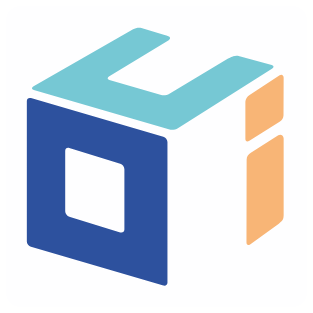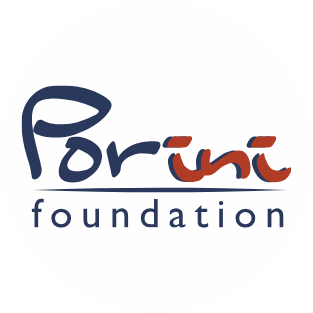.png)
Safe Health Systems
Safe Health Systems is a digital health and connected diagnostics company. In collaboration with Mayo Clinic, Safe Health developed the SAFE platform. The company's mission is to empower individuals, private-sector organizations, and governments with technology that facilitates decentralized care models and improves patient outcomes on a large scale.
The company provides a comprehensive Connected Care Platform that enables the rapid deployment of specialized digital health applications. Key services include integrated at-home and point-of-care diagnostic testing, remote patient monitoring, and telehealth experiences. The platform is designed for interoperability, allowing it to connect with and integrate siloed health data from various systems, including Electronic Health Records (EHRs). Safe Health also developed HealthCheck, a smartphone and desktop app.
The company utilizes the Hedera Consensus Service (HCS) to create an immutable and verifiable log of patient information and unique health identifiers. This integration allows Safe Health to provide a high level of trust and data integrity for all stakeholders. By logging events and health records on the Hedera network, Safe Health can cryptographically prove the authenticity of data in real-time while preserving patient privacy, meeting regulatory compliance standards like HIPAA, and ensuring a secure foundation for its digital health solutions.
Project Information
Related Projects

The Liechtenstein Protocol is a decentralized compliance protocol developed by LCX, a regulated fintech company based in Liechtenstein. It’s designed to standardize the way security tokens and other tokenized assets are issued and traded on blockchains, with a strong focus on regulatory compliance.
The core of the Liechtenstein Protocol is a set of on-chain and on-token-level rules that can be embedded directly into a digital asset. These rules can automate compliance with a wide range of legal and regulatory requirements, such as those related to KYC (Know Your Customer) and AML (Anti-Money Laundering). Key services enabled by the protocol include on-chain asset management, which allows for the issuance, timelocking, and burning of tokens, as well as real-time tracking of a token's ownership through a "Token Holder Registry."
The Liechtenstein Protocol is blockchain-agnostic, but it has a key integration with the Hedera network leveraging the Hedera Token Service (HTS) to provide a secure, transparent, and compliant infrastructure for digital securities.

Object Computing, Inc. (OCI) is a technology consulting company founded in 1993 and based in St. Louis, Missouri. It specializes in designing and building custom software solutions for enterprise clients across various industries, including defense, aerospace, financial services, and healthcare.
OCI's services span the entire software development lifecycle, from strategy and design to implementation and support. The company offers expertise in a wide range of technologies, including real-time and embedded systems, cloud computing, machine learning, and the Internet of Things (IoT). A significant part of their work involves helping organizations modernize their legacy systems and adopt new technologies to improve efficiency and drive innovation. They also create and sponsor multiple open-source projects, most notably Grails, a popular web application framework based on the Groovy programming language.
Object Computing leverages its extensive experience in enterprise software to help organizations build and integrate solutions on the Hedera network. OCI provides consulting, training, and development services specifically for Hedera, enabling businesses to utilize the platform for applications requiring high throughput, security, and auditable data logging.

The Porini Foundation is a Swiss-based non-profit organization dedicated to bridging the gap between innovative technology and nature conservation. Founded by experts in wildlife biology, blockchain technology, and sustainable business, its mission is to support climate and nature conservation projects by leveraging disruptive technologies, particularly zero-carbon blockchain solutions, to align with the UN's Sustainable Development Goals.
The foundation's flagship initiative is Nature Collectibles, the first global marketplace for NFTs for Conservation (NFTCs). This platform allows individuals to purchase digital collectibles that are directly linked to real-world conservation projects in protected areas. Each collectible represents a specific species, and 100% of the proceeds go directly to funding conservation efforts, with the foundation covering all transaction fees. This creates a transparent and direct funding channel for vital conservation work.

Qyuki is a data-driven digital media company based in India that is dedicated to empowering the country's creator economy. It was co-founded by industry leaders including musician A.R. Rahman, Qyuki functions as a full-service network for digital artists and influencers. The company’s core mission is to discover, nurture, and manage a diverse roster of talent, providing them with the strategic support needed to grow their audience and brand. This includes services such as content production, digital rights management, and audience development, all informed by sophisticated data analytics to optimize reach and engagement across various social media platforms.
A key part of Qyuki’s service is creating monetization opportunities for its creators through brand partnerships, endorsements, and sponsored content. The company acts as a vital bridge between India’s top brands and its vast network of digital talent.
Qyuki is partnered with the HBAR Foundation and features a Web3 platform on the Hedera network called the "Qyuki Vibe." This initiative enables creators to launch their own NFTs and other digital assets, creating new avenues for artists to monetize their work, engage directly with their fanbase, and manage royalties with greater transparency.
